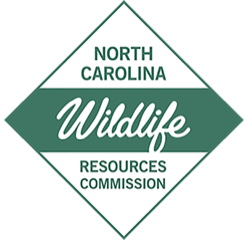 |
RALEIGH, NC – The second half of summer comes with a few typical themes: barbeques with family, the sound of lawnmowers, outdoor walks and young squirrels falling out of trees.
Yes, that’s right. This is the time of year that squirrels such as the common gray squirrel are raising their second brood of the year. Summer storms and tree-cutting activity, along with other similar events, can lead to young squirrels, and sometimes the whole leafy nest, falling out of their high tree perches. As a result, biologists with the N.C. Wildlife Resources Commission see an influx of reports from concerned citizens who have found a grounded young squirrel and want to know how to help.
The first thing to do is look to see if the animal is obviously injured, wet or otherwise sickly-looking. If not, it’s probably safe to leave it where you found it long enough to contact a professional and get his/her advice.
Licensed wildlife rehabilitators in North Carolina specialize in caring for injured or orphaned wildlife and can help people take the right action to give the animal its best chance of survival. More often than not, they’ll recommend leaving the young squirrel there to give the mother a chance to retrieve it.
When a squirrel’s nest is disturbed and the young end up on the ground, the female will work as fast as she can to find her young and place them back in the nest. If the nest is destroyed, she’ll build a new nest first, then search for each of her young and carry them to the new nest.
If a young squirrel is removed from the area before the female retrieves it, the chances of it surviving are significantly reduced.
“Humans simply are not as good at taking care of young animals as their mothers,” said Falyn Owens, the Commission’s extension biologist. “I cannot overemphasize how important it is to speak with a licensed wildlife rehabilitator first, before taking a wild animal home and attempting to care for it.”
Although people may mean well, handling a wild animal, and particularly a young one, can cause more harm than good. This is especially true if the female comes looking for her young and can’t find them.
Licensed wildlife rehabilitators can provide advice on whether or not the animal actually needs human help, and what type of help to provide. For example, while giving a young animal food or water is often a person’s first instinct, it is not recommended, and can be quite harmful. If needed, wildlife rehabilitators are legally able to take the animal in and care for it until it can be released back into the wild.
“It's important to understand that possession of live, native wildlife is illegal in North Carolina, except particular circumstances, and this usually requires a license or permit,” Owens said. “Despite a person’s best intentions, a wild animal is best left where it was found, or in the hands of a licensed wildlife rehabilitator.”
During the busy season for orphaned and injured wildlife concerns (spring and summer), wildlife rehabilitators can be very busy. If they don’t answer the phone right away, Owens advises to leave them a message rather than calling multiple times. When in doubt, even a rehabilitator in another county can provide advice over the phone.
For more information about gray squirrels in North Carolina, visit the Commission’s gray squirrel webpage.
For questions regarding human interactions with squirrels or other wildlife, visitncwildlife.org/Have-A-Problem or call the Commission’s N.C. Wildlife Helpline toll-free at 866-318-2401. The call center is open Monday through Friday (excluding holidays) from 8 a.m. to 2 p.m.
Download a high-resolution image to complement this release. Please credit Jim Combs.
Due to the COVID-19 virus, the sales counter at the Wildlife Commission’s headquarters in Raleigh is closed. We encourage the public to visit our website, www.ncwildlife.org, to purchase fishing, trapping and hunting licenses and to renew a vessel registration. Currently, the Commission’s License and Vessel Registration Call Centers are open from 8:00 a.m. –5:00 p.m., Monday-Friday. For the most up-to-date information on agency-related closures, cancellations and postponements visit ncwildlife.org/covid19.
About the N.C. Wildlife Resources Commission
Since 1947, the N.C. Wildlife Resources Commission has been dedicated to the conservation and sustainability of the state’s fish and wildlife resources through research, scientific management, wise use and public input. The Commission is the state regulatory agency responsible for the enforcement of fishing, hunting, trapping and boating laws and provides programs and opportunities for wildlife-related educational, recreational and sporting activities.
Get N.C. Wildlife Update — news including season dates, bag limits, legislative updates and more — delivered free to your Inbox from the N.C. Wildlife Resources Commission.
Media contact: Jodie B. Owen
919-707-0187
